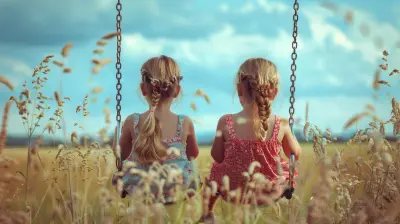Encouraging Sibling Friendships that Last a Lifetime
29 October 2025
Let’s be honest — if you've ever refereed a sofa wrestling match between your kids over a TV remote, or walked into a room where one sibling has barricaded the door to keep the other out, you’ve probably wondered: “Will these tiny humans ever like each other?”
Here’s the good news: yes, they can! In fact, they can go on to become each other’s greatest allies — think Batman and Robin-level close. But like most great partnerships, it takes a bit of encouragement, a dash of creativity, and a whole lotta patience (and maybe some noise-cancelling headphones).
In this guide, we're diving into the witty and wild world of encouraging sibling friendships that last a lifetime. Grab your coffee (or wine — we don't judge), kick off your shoes, and let’s chat about how to turn your household from WWE Raw to an episode of Friends.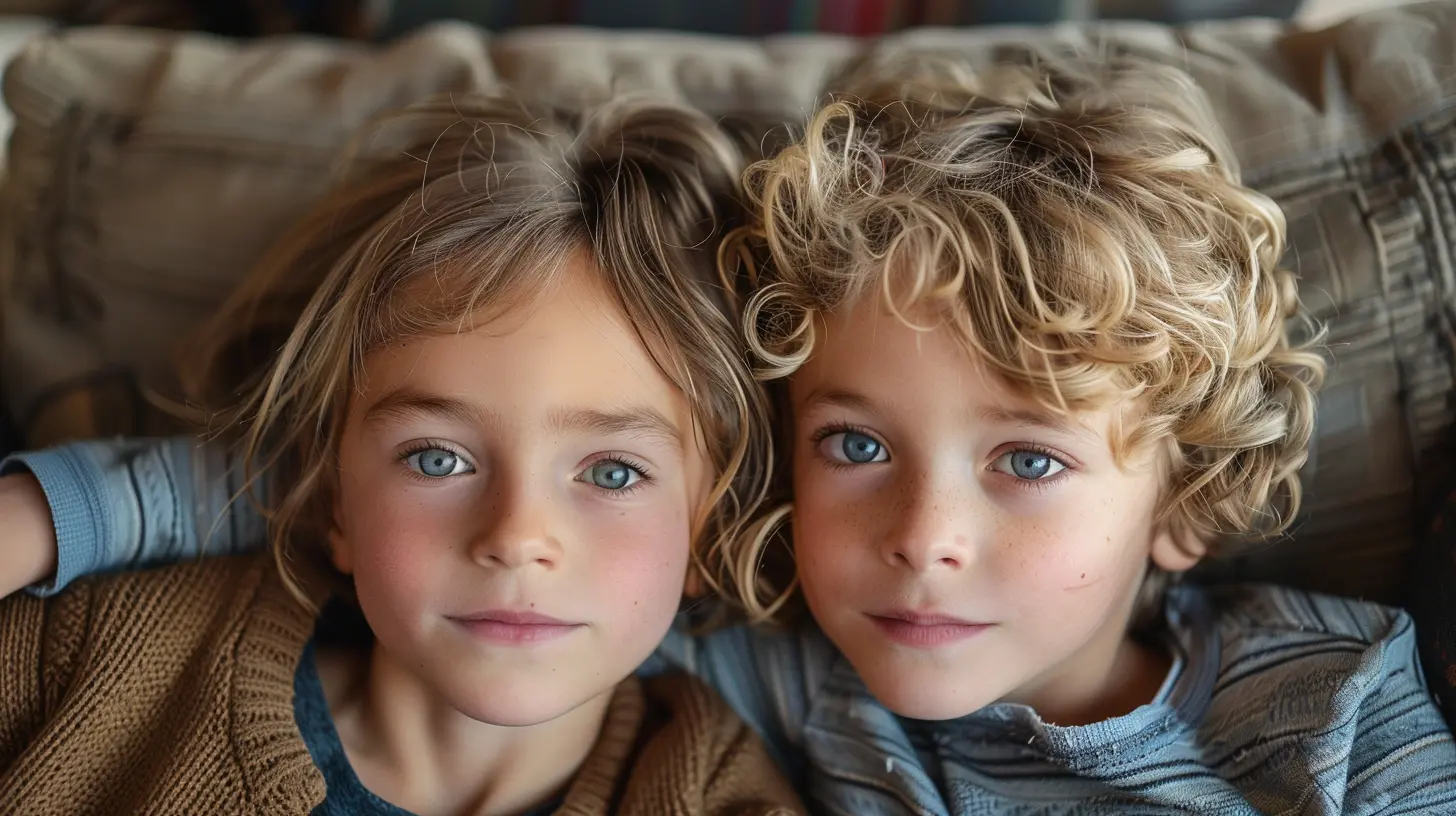
Why Sibling Bonds Matter More Than You Think
Let’s start with the "why" before we dive into the "how". Sibling relationships are the longest relationships most people will have in their lives. Longer than friendships. Even longer than most marriages. Yep. That sibling your kiddo is yelling at for stealing the last cookie? They're going to be around forever.Siblings are built-in buddies. They’re the playmates of childhood, the partners in crime during adolescence, and the adult allies who’ve seen the full behind-the-scenes documentary of your life. Creating strong connections between siblings doesn’t just make your house more peaceful — it gifts your children emotional support that spans decades.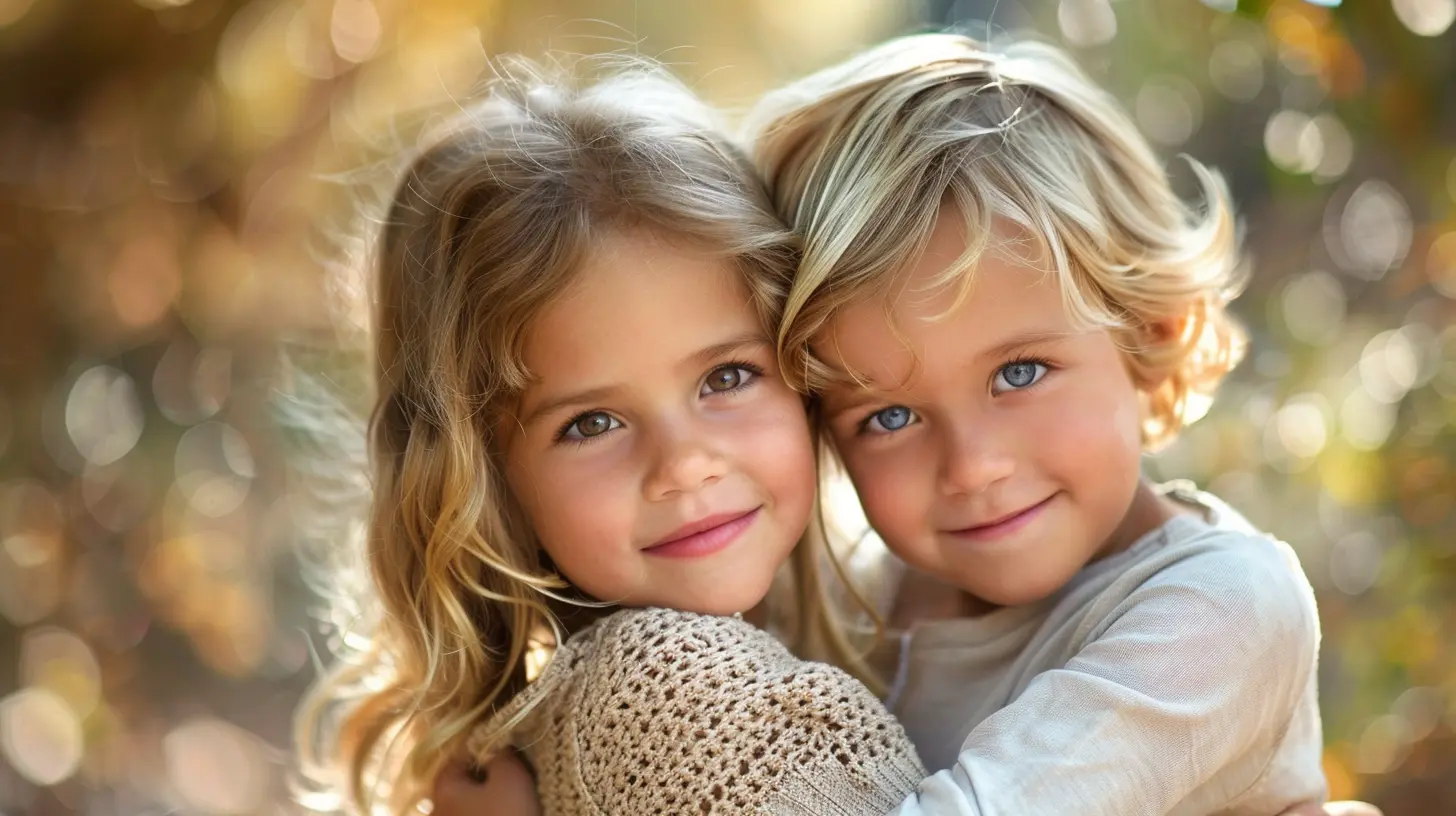
Start Early (Like, As Early As "Who's The Baby?" Early)
If you’ve got a newborn and an older sibling, congratulations — you're juggling kids and still managing to read blogs. That’s already superhero status.When a new baby arrives, it’s natural for older kids to feel like yesterday’s news. But there are simple ways to ease the transition and nurture that sibling connection from day one:
- Make them the "Expert": Older siblings love to feel important. Ask them to "teach" the baby things (yes, even if the baby is still in diapers and can't hold up their own head).
- Create Baby Bonding Time: Let your child read to the baby, sing, or help with diaper changes. (Okay, maybe not diaper changes. We're not raising martyrs.)
- Use Their Name Constantly: “Look how happy your baby brother is to see you!” gives your older child a starring role in this new chapter.
The earlier you involve them, the more natural the bond becomes.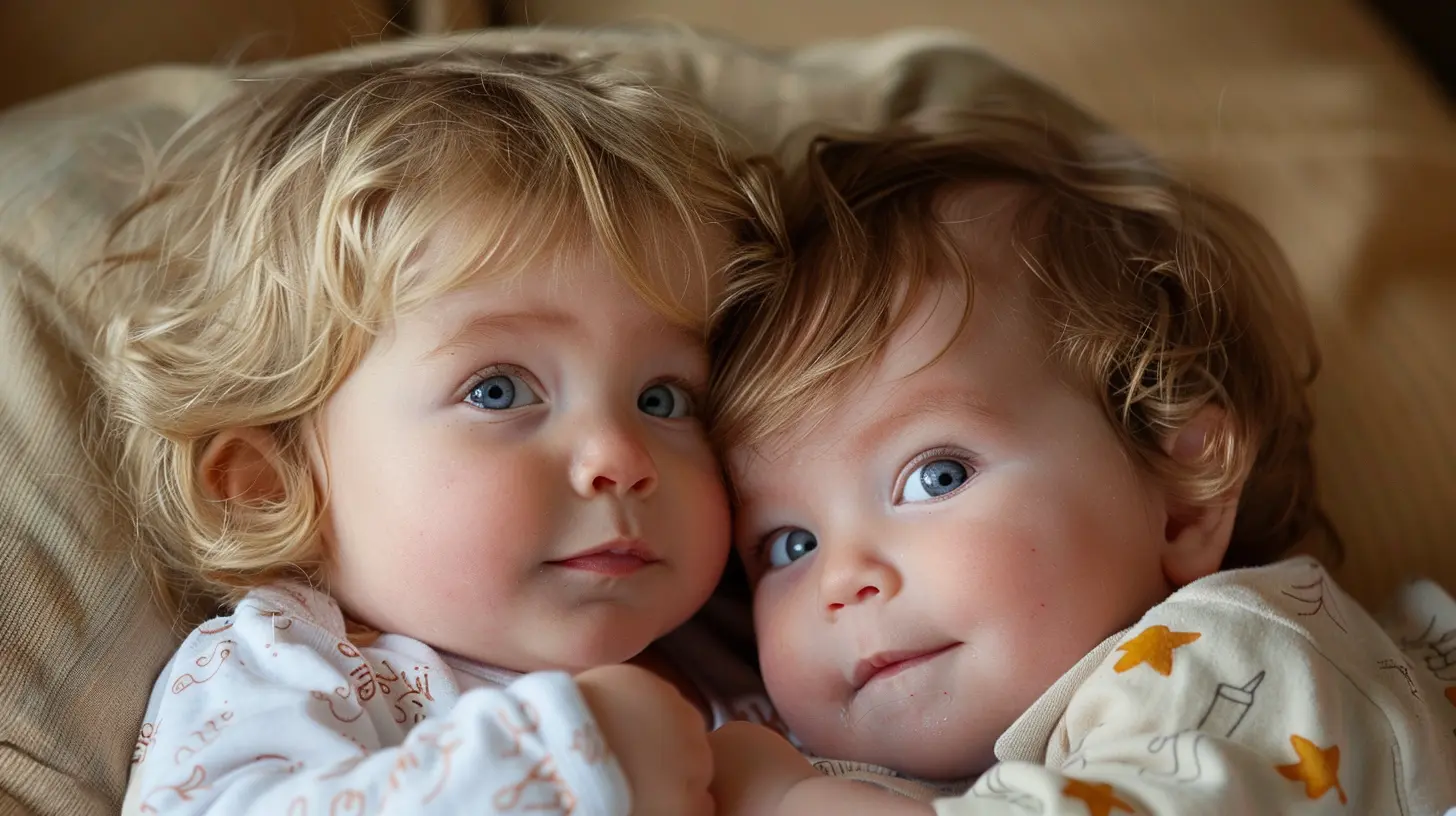
Normalize Disagreements (They’re Not Mortal Enemies, Just Human)
Picture this: Your kids are arguing over a toy. Again. Now, before you pull out your judge’s gavel or start quoting the Geneva Convention, take a breath.Conflict between siblings is totally normal. In fact, it's healthy. It teaches communication, negotiation, patience — all the skills that make grown-up relationships work. The key is guiding them through it, not rescuing them from it every single time.
Try This Instead:
- Coach, Don’t Control: Rather than barking orders like “give it back!" ask, “How can you both take turns?”- Name the Feeling: Helping them identify emotions (frustration, jealousy, anger) creates empathy. “You’re feeling left out because your sister didn’t include you, right?”
- Avoid Labels: "She’s always the nice one" or “He’s the troublemaker” sticks with kids longer than dinner on spaghetti night. Keep it fair.
By showing your kids that it's okay to disagree — and, more importantly, how to make up — you're laying the groundwork for resilient relationships.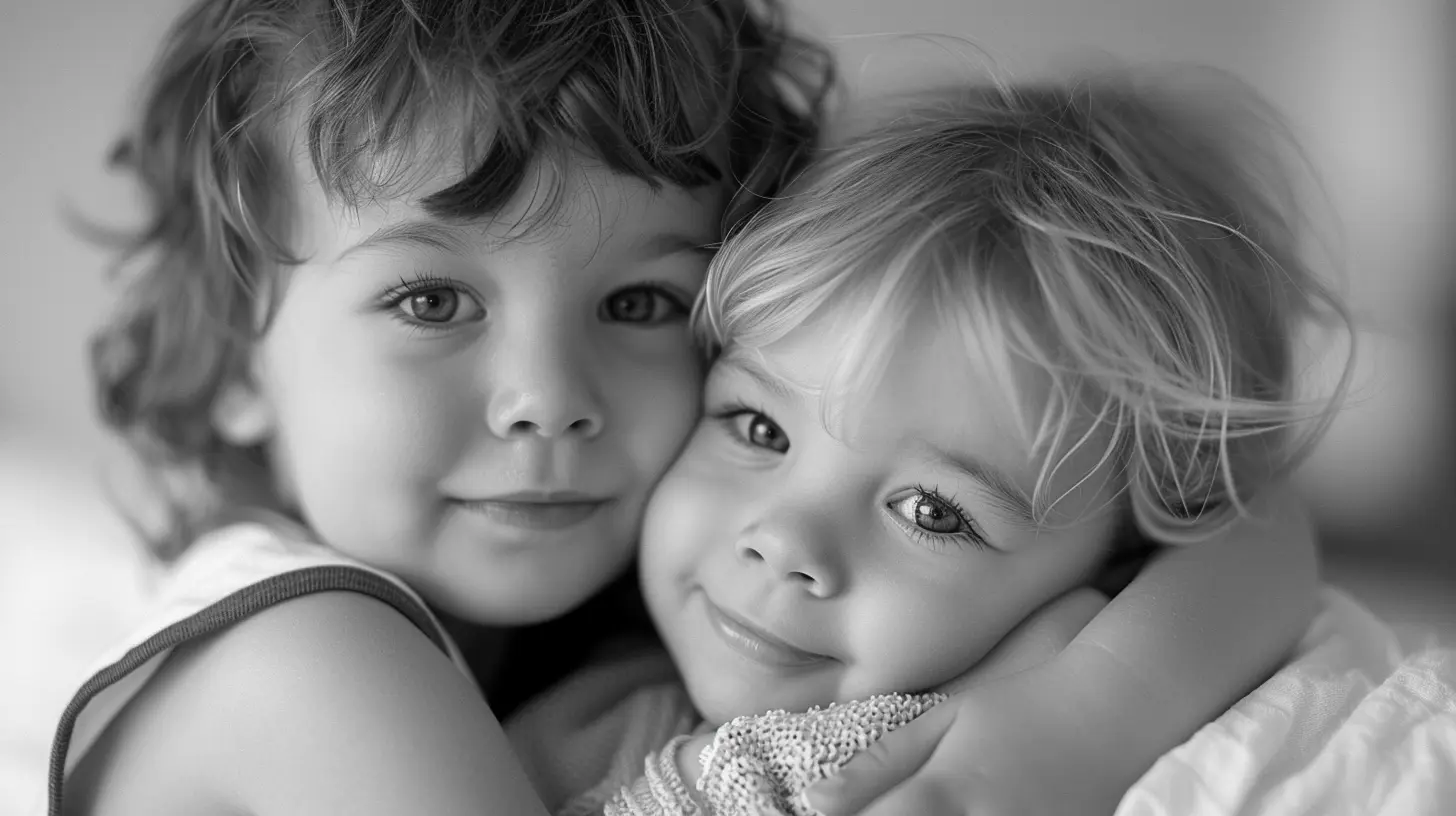
Create Shared Experiences (aka, Operation Bonding)
Nothing builds relationships like shared memories. And no, we’re not talking about forced family game nights where everyone ends up crying over Monopoly. We mean moments that are collaborative, funny, and maybe even a little messy.Fun Ideas to Spark Sibling Friendship:
- Build Something Together: Forts. LEGO cities. Homemade pizzas. Teamwork makes the dream work.- Assign Them a “Mission”: Turn them into secret agents with a goal. “Your mission: find the hidden treasure (a.k.a. Mom’s old earrings).”
- Tag-Team Chores: Weirdly enough, working together can be bonding. Crank up the music and turn dishwashing into a dance party.
- Create a "Sibling-Only" Ritual: Maybe it’s Saturday cereal and cartoons. Or a secret handshake. Something just for them.
It’s all about creating little pockets of connection that they associate with laughter, not just laundry lists.
Encourage Each Child’s Individual Identity (Yes, Even If They’re Twins)
It might seem counterintuitive, but one of the best ways to bring siblings together is to celebrate what makes them different.If one’s a bookworm and the other’s a ballerina, awesome. Let your kids shine in their own lanes instead of pitting them against each other in some imaginary competition for your love.
Pro Tip: Avoid comparing them. Even well-meaning remarks like "Why can’t you keep your room clean, like your brother?" can breed resentment faster than mold on a sandwich.
When kids feel secure in who they are, they’re less likely to compete — and more likely to cheer each other on.
Model the Behavior You Want to See (Yes, They're Always Watching)
Our kids are like little sponges, soaking up everything — including how we handle our own relationships. If they see us being snarky, holding grudges, or avoiding confrontation, guess what they’ll do?On the flip side, when we apologize, show affection, or laugh after a disagreement, we’re giving a masterclass in maintaining real relationships.
So, hug your partner, call your own siblings just to say hi, and highlight those positive moments in front of your kids. Your actions are the blueprint.
Let Them Work It Out (But Within Arm’s Reach)
As tempting as it is to play peacemaker every time yelling erupts, sometimes the best thing you can do… is nothing. Okay, not nothing. But give them space to figure things out on their own (unless things are getting unsafe, of course).Children grow wisdom when they navigate conflict and resolution themselves. You’ll be amazed at what they can come up with when you’re not hovering like a parenting drone.
Celebrate “Sibling Success Moments”
Ever catch them helping each other without being asked? Sharing the last cookie (willingly!)? Watching a movie together without calling each other names?Celebrate it.
Call it out: “Wow, you were so kind to help your sister with her shoes!”
Create a little ritual — maybe give out a “Sibling of the Day” sticker or just offer an extra scoop of ice cream when they’ve had a great day working together. Positive reinforcement is like emotional fertilizer. It helps that sibling bond bloom.
Don’t Force It (Like, Seriously)
This one might sting a little. But however badly we want our kids to be besties, we can’t force a relationship. And we definitely can't expect it to look picture-perfect all the time.There will be phases where they bicker non-stop. There will be times when one wants space and the other wants attention. That’s okay.
Your job isn’t to make them love each other on your schedule. Your job is to create the environment where love can grow — even if it's a slow starter.
When They Grow Up… Keep the Bond Alive
Sibling friendships don’t end when they move out and stop fighting over whose turn it is to do dishes. Encourage your adult kids to keep the connection going:- Set up regular sibling check-ins — a group chat, a monthly Zoom call, or even silly memes.
- Celebrate each other’s milestones (graduations, babies, promotions).
- Reminisce. Shared memories are magic glue for adult sibling relationships.
The love you helped them nurture in childhood becomes the foundation of connection throughout their lives. It’s a beautiful thing to know your kids will have each other long after your parenting journey evolves into grandparenting (and yes, that's a whole other wild ride).
Final Thoughts: You’re Raising Life-Long Teammates
Building sibling friendships that last a lifetime isn’t a checklist you can knock out over the weekend. It’s more like gardening. You plant seeds, water them with shared laughs and inside jokes, pick a few weeds (aka tantrums), and sometimes you pray for rain (aka patience).Be the gardener, not the architect.
The roots you help your kids grow today — in love, respect, and empathy for each other — will carry them farther than any toy, chore chart, or “Because I said so” ever could.
So, next time your kids are squabbling over who gets the front seat, remember: you’re not just managing chaos. You’re shaping siblings into lifelong friends.
Now go hide that last cookie for yourself. You earned it.
all images in this post were generated using AI tools
Category:
Family LifeAuthor:

Steven McLain
Discussion
rate this article
1 comments
Madalyn Gonzalez
Transform sibling relationships into lifelong friendships by fostering love, understanding, and open communication—building a foundation of trust that will last a lifetime!
November 5, 2025 at 5:19 AM

Steven McLain
Thank you for your insightful comment! Fostering love, understanding, and open communication is indeed essential for creating lifelong sibling friendships.

